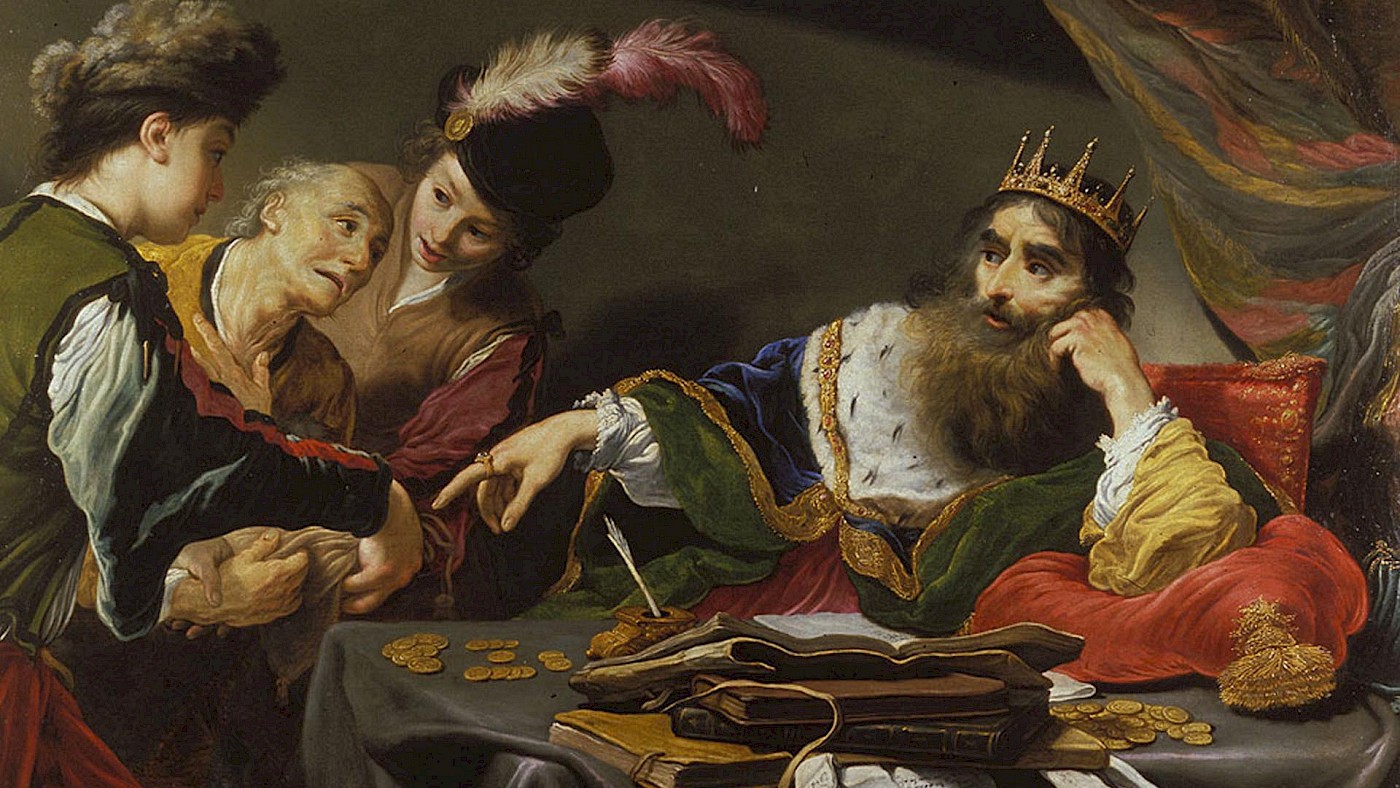In his Histories (1.29–34), Herodotus claims that when Croesus, the king of Lydia (r. 560-ca. 547 BC), had established his dominion over western Anatolia, all the wise men of that time travelled from Greece to Sardis, the kingdom’s capital city. Among these men was Solon the Athenian.
Solon was credited for having created new laws in Athens in an effort to stave off factional strife among the ruling families. Afterwards, according to Herotodus, he left the city and wandered the world. He spent some time in Egypt at the court of King Amasis, before setting sail for Lydia and visiting its king, Croesus.
An Athenian in King Croesus’ court
In Sardis, Solon was entertained by the king for some days before being taken to the treasury to look at the wealth stored there. Croesus’ wealth was proverbial in the ancient world (“as rich as Croesus”). Considering how much Solon had travelled and how many people he had met, the king demanded to know: “Who is the happiest man you’ve seen?”
The Lydian king expected Solon to name him as the happiest man he had come to know. He was therefore quite surprised when the Athenian mentioned an unknown man by the name of Tellus. Solon explained that Tellus was the happiest man he had ever known, because he lived in a well-governed country, had virtuous sons (who all had children that survived the perilous early years of childhood), and eventually died valiantly in battle.
Croesus had patiently listened to Solon relate the history of Tellus. He then demanded to know who the second-happiest man was that Solon had met, hoping that the Athenian would now finally name Croesus. But Solon disappointed the Lydian king again by naming Cleobis and Biton, two Argive youths who had died in the prime of life after performing a remarkable feat worthy of remembrance.
This enraged Croesus. He demanded to know why Solon thought him less happy than those ordinary men. Solon explained that while a man was still alive, he was subject to the fickleness of the gods, and suffered both good and bad luck. As such, he could not possibly determine if Croesus was truly happy until he knew whether or not the monarch had ended his life happily, as did the Tellus and Cleobis and Biton. Being wealthy, Solon explained, is no guarantee for happiness. Instead, only the man who enjoyed good fortune for much of his life and died in a tranquil or honourable manner can truly be said to have been happy.
Croesus believed Solon was an ignorant man and dismissed him. Yet, the truth of Solon’s words were soon demonstrated when Croesus started to suffer misfortune. The best of his two sons would die in an accident. Croesus himself would be defeated by the Persians under Cyrus the Great; his kingdom was taken from him and made a part of the Persian Empire.
Evaluating the anecdote
Herodotus’ story is interesting for what it reveals about a particular, ancient Greek conception of happiness. However, it seems very unlikely that it is anything more than a story.
Solon probably never visited Lydia (or Egypt, for that matter). It seems even less probable that he spent time with King Croesus himself. While Herodotus claims that Croesus survived the Persian conquest of Lydia, the fact is that elsewhere he disappears from history, and so most likely either died defending his kingdom or committed suicide.
Of course, all this does little to diminish the value of the words that Herodotus puts in Solon’s mouth – the moral of the story. And that, really, is all that matters in this case.
